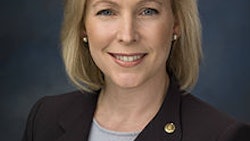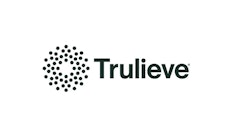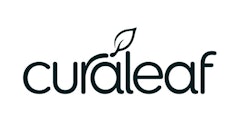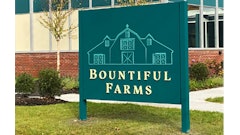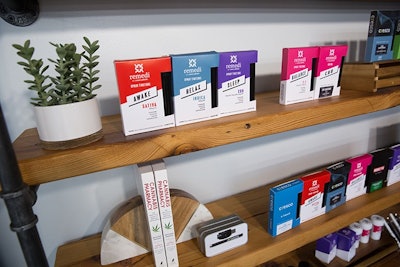
Pennsylvania’s medical marijuana program launched this week with state-licensed dispensaries such as Cresco Labs’ CY+ and Solevo Wellness paving the way as some of the first to sell regulated medical marijuana in the state.
“So far, nine times out of 10, everyone’s excited about this,” says Solevo’s dispensary manager, Rocco Levine. “I didn’t personally think, from living here my entire life, [that] we were going to be so accepted.”
“Everyone I’ve spoken with here has embraced the medical marijuana program with open arms,” agrees Daniel Palmer, director of cultivation for Cresco Yeltrah, which sent its first shipment to Cresco’s Pennsylvania CY+ dispensary this week. “I think everyone’s really excited to have a new industry in this area. … Everyone sees the benefit from a medical standpoint but are also excited to have increased jobs and revenue for areas that haven’t seen a new industry come through in quite some time.”
“I think it’s incredibly exciting for folks who are local to here,” adds Zach Marburger, Cresco’s chief information officer (CIO). “They see it happening in Colorado, they see it happening in Illinois, just not where they’re at, and so to work here locally with our team and actually bring it to light, it never gets old. … We have the opportunity to bring relief to upwards of 14 million people. We’re very excited about doing that.”

Palmer came from Washington state and believes Pennsylvania has succeeded in rolling out its medical marijuana program. “It’s been a long road, but they’ve done a really good job in bringing medical marijuana to patients,” he says.
Levine says Pennsylvania has some of the strictest cannabis regulations he has seen. He grew up in Pittsburgh but worked for six years as the manager of a San Francisco dispensary before returning home. Pennsylvania has taken a more hands-on approach, now that the cannabis industry has arrived in the Keystone State.
“We have rules in place that kind of tell us: Put our left foot here, put our right foot here, in almost every process,” he says. “It’s almost like they wrote our SOP for us. … They put every law from everywhere else and added some themselves.”
Pennsylvania’s Department of Health (DOH) has been challenging to work with, Levine adds, but the DOH is made up of only two people who work with the growers and dispensaries to make them operational and compliant.
“It’s been difficult, but at the same time, all those measures are correct measures made by those two employees,” Levine says. “They did a great job. I would never put them down for making my job more secure, making my patients more comfortable.”
The regulations also help Levine and his team feel more confident in their operations, he says, because of the state’s clear limitations.
“We follow this pattern, and everything will work as far as the Department of Health is concerned,” he says.
Flower and edibles are prohibited by state regulations, but Cresco Yeltrah is in a good position to handle the extract-only market, Palmer says.
“We have a lot of experience producing top-notch extracts,” he says. “We didn’t have to really change any of our normal standard operating procedures other than the fact that we’re not going to sell any of that flower. All of our facilities have top-notch labs, so we’re business as usual except for flower sales.”
Adjusting Business Models and Employee Training
Cresco is an Illinois-based cannabis operator that has expanded to run vertically integrated operations in Pennsylvania with three dispensary locations in addition to its cultivation facility. The Yeltrah brand is Pennsylvania-specific (and “Hartley” spelled backwards—a nod to a local family the company partnered with to break into the market). Cresco also holds a cultivation license in Ohio, where it hopes to become vertically integrated, as well. The company’s advisory board includes professionals from various industries spanning from security to cannabis advocates, who assisted in the complete design, build and layout of the Pennsylvania facilities.
“As the number of patients increases, we can have sustainable growth within Cresco Yeltrah to meet the increased demand of patients as more patients come online,” Palmer says. “Basically, [we’re] planning ahead for those adjustments so we don’t have to scramble to catch up.”
Pennsylvania has a mandatory two-hour training course for all cannabis employees, Palmer says, which covers a range of topics from the medical use of cannabis to product diversion. The state also requires different in-person and online classes for dispensary employees specifically. The pharmacy and dispensary manager go through even more extensive training than the budtenders, or patient care specialists, as Cresco calls them. In addition, Cresco requires all employees to read and review the company’s standard operating procedures (SOPs), even for departments they do not work in, so that any employee can assist wherever needed.
“We have our own internal set of learning management systems and standard operating procedures that we run folks through with different nuances and changes based on the market we are in,” Marburger adds.
In Pennsylvania, employees learn to articulate to patients that flower cannot be purchased and that all of Cresco’s products come from extraction and manufacturing processes.
“That’s a large part of our employees’ understanding—how our products are made and the benefits they offer consumers—because most folks are often coming from gray or black markets where the most popular form of consumption is smoking flower, and that’s not something we can even engage in on a regulated level,” Marburger says.
All Cresco employees are also trained on MJ Freeway, the tracking software used in Pennsylvania.
Hiring can be challenging in a new market like Pennsylvania where not many people have experience in the cannabis industry. This requires Cresco to train new employees on basic subject matter, Marburger adds.
Solevo also worked tirelessly to educate the company’s employees and prepare them for their first sales, Levine says. New hires joined the team about five weeks ago.
“A lot of these people are from Pittsburgh,” he says. “Some of us moved away to a medical state, some of us have stayed, so we have that cross between knowledge and customer service. [Management] gave us enough time and resources to [educate] our employees, which, from what I’ve seen at other dispensaries right now, is a huge, huge advantage.”
Products and Dispensary Design
Cresco is looking forward to exploring and developing new products in its lab, Palmer says.
“Being an extract-only market allows us to think outside the box in terms of bringing product to the market,” he says.
Once that product hits Cresco’s dispensaries, it is sold by a state-licensed pharmacist, Marburger says.
“The biggest [difference in Pennsylvania] is we actually have to have a state-licensed pharmacist on staff whenever we are open,” he says. “It’s not just a team of retail folks, it is actually somebody who is licensed by the state to be a pharmacist at a CVS or a Walgreens or the like.”
Dispensaries in the state look and feel more like a traditional doctor’s office with medical staff, and they assimilate themselves into the local culture, Marburger says.
“We like to call it modern industrial—a kind of steel approach, if you will,” he says. “Being that we’re in Southwest Pennsylvania, we created a very welcoming, modern technology-driven environment.”
“[Our employees] make me feel like I’m coming into a really fancy doctor’s office,” Levine adds, referencing Solevo’s dispensary in Squirrel Hill. “It’s unbelievable how it feels; as a dispensary manager I never thought that could be possible in this industry, but they did a perfect job at it.”
Cresco maintains constant security at its dispensaries, from audio and video surveillance to a security guard on site both during business hours and a few hours before the dispensary opens and after it closes for the day, Marburger says. It has a traditional-style bank vault with bullet-proof glass that is only accessible by certain employees.
“We like to call it something like Fort Knox, if you will,” Marburger adds.
Even so, Cresco ensures its dispensaries are welcoming and provide a more pleasant experience than a patient might expect from a traditional doctor’s office, Marburger says.
Like Cresco, Pittsburgh-based Solevo also has an executive board made up of doctors, lawyers and a CPA, who have helped the company craft its dispensaries into medical facilities. The build-out has been a process, but Levine has been educating the company’s employees and preparing for the first sales.
Advertising and Educational Campaigns
The state has restrictions on the messaging of cannabis marketing and advertising, although they do not prohibit companies from using specific channels to advertise, Marburger says. Cresco currently has active billboards throughout Southwest Pennsylvania, Facebook ads and local newspaper ads that do not promote the company itself, but rather awareness of the medical marijuana program, Marburger says.
“Each time we go into a new state, we launch a ‘State of Relief’ campaign, punning on the fact that their state just launched this program,” he says.
For example, in Illinois, Cresco used a swimming pool in the shape of the state and said, “Welcome to a state of relief.” StateOfRelief.com is a resource for potential Pennsylvania patients to learn the steps necessary to participate in the medical marijuana program and to access all the required forms, Marburger says.
Pennsylvania has been hit hard by the opioid epidemic, Marburger adds, and he is hopeful about the growing number of people who are exploring medical marijuana as an alternative to opiates.
“By and large, the local community has been incredibly supportive,” Marburger says. “We had a ribbon-cutting ceremony in the past couple weeks for our open house that was well-attended by every local community stakeholder, and the mayor cut the ribbon and the chief of police was here, so we think the more challenging aspects will be continuing to educate lawmakers on the current aspects of the program that potentially prohibit it from growing.”
Solevo also wants to ensure that medical marijuana is viewed as medicine and help educate the public.
“Our top three [goals] right now would be: comforting the patient with customer service, making sure that through our marketing we’re one of the most educational dispensaries … and our patient services,” Levine says.
The stigma of marijuana use continues to subside, and more people continue to understand that cannabis is a medicine and not just a plant, Levine says.
“They’re excited to have a better life, and couldn’t believe that it actually happened in Pennsylvania,” he adds. “We’re here to give back to the community. Of course, there’s the financial aspect of this, but in my eyes, the patient comes first. And we will do anything we can because the medicine’s going to be expensive, I need to offer as many things as I can for them to have a better life without having to pay us for it.”
Photos courtesy of Cresco Labs
Digital editor Eric Sandy contributed to this story














